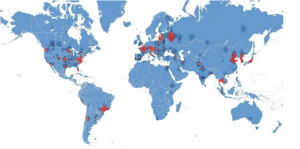Had a meeting yesterday with the Police Central eCrime Unit in London together with a few other leading ISPs and content providers to discuss how the industry can help tackle eCrime.
Part of the problem is the speed at which things happen in the internet world when compared with the “good old fashioned” Old Bailey style of justice where response times are slow and delay is the norm .
For example a police officer working on a case can take days for to obtain a court order requesting data on a suspect from an ISP. In this time the gang has moved on and is lost to the justice system. A Communications Provider needs a court order to do this as providing such data without one is in breach of privacy laws, despite the cause notionally being a good one.
The solution is likely to be to put a system in place to speed up the process. Whilst speed of communications between police and ISP could possibly be improved it seems to me that the whole area would benefit from specialist “eJudges”.
An eJudge would be conversant with the workings of the internet and being able to respond in real time to requests for Court Orders. Such a judge would not have to sit in on normal court sessions.
The bit about understanding how the internet works is a real issue. In recent times ISPs have been the subject of court orders requiring them to “remove certain websites from the internet”.
Whilst an ISP can take down a site hosted on its own servers it can’t completely remove it from the internet because that site is likely to be cached in many places (countries) and could be easily replicated elsewhere.
In this instance the ISP would likely be in breach of the court order even though it had removed the offending site from its own server.
I realise that it is unlikely that a court would pursue the ISP in such a case but this does hilight the ignorance of the judiciary in these matters.
Rumpole of the Bailey is not equipped to cope with modern criminals and specialist eJudges would be a very cost effective solution.


